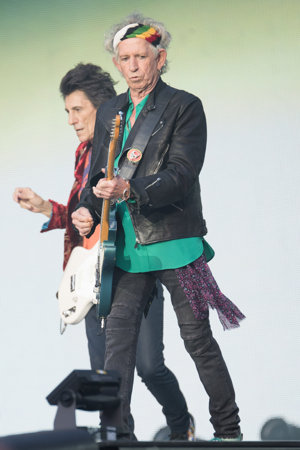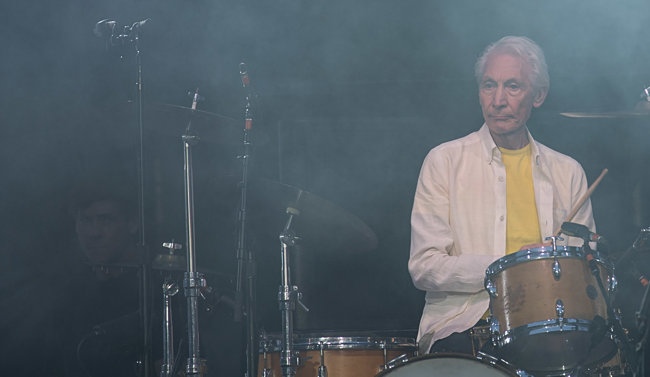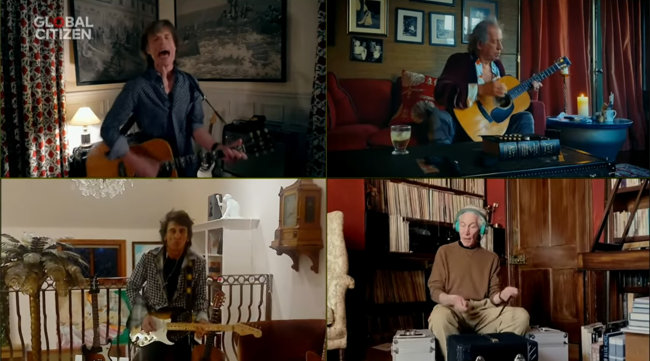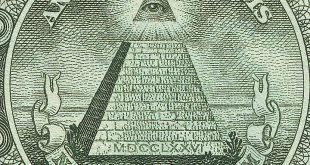by Theobald Tiger
How are you coping without your football on Sundays, dancing on Saturdays and Mass on Fridays? Were you content with a slower way of life during the State of Emergency? And are you content now, during this current State of Calamity?
Maybe your life isn’t that easy. There are several factors that complicate our relationship with the world, like fear of the pandemic and anxiety surrounding economic survival. Fear kills our connection to others, and prevents us from accessing the world around us. It makes us retreat into ourselves.
In modern societies, people often put off the pursuit of their hopes and dreams. We have all heard the following…
“When the children leave home, I will finally be able to play the piano again” or “When I finish building a house, I will finally find more time to be outdoors.”
 Now that many of us can finally pursue these projects, we have found that it’s not that simple. We aren’t sitting at the piano and feeling, from one moment to the next, a sense of contentment and a new connection to the world. It seems to me that we are in need of this sort of intimate connection with everything around us. For me, it’s not really about working thoughtlessly on something or completing tasks, but about getting involved in a project like, for example, writing a good article, an activity which I find meaningful and moving.
Now that many of us can finally pursue these projects, we have found that it’s not that simple. We aren’t sitting at the piano and feeling, from one moment to the next, a sense of contentment and a new connection to the world. It seems to me that we are in need of this sort of intimate connection with everything around us. For me, it’s not really about working thoughtlessly on something or completing tasks, but about getting involved in a project like, for example, writing a good article, an activity which I find meaningful and moving.
When engaged in writing, I am not affected in a passive way. I am driven instead by selfmotivation. When writing, I am able to turn words and phrases into stories. I listen to myself and I respond. During this process, I always experience transformation; I don’t stay the same.
The problem, however, is that such a connection cannot simply be produced, purchased or forced. These days we often sit at our laptops, or pick up a piece of classical literature and… nothing happens. We don’t feel touched or transformed. Before Covid-19, 20 or 30 years ago, we got used to living a hectic – perhaps even harsh – lifestyle. And this won’t disappear overnight. We forgot how to connect to the world and now we have to make a big effort to remember again. What will we be left with if we do not organise; if we are not active and do not work? I worry that many people wouldn’t be able to manage. Does this sound familiar to you?
We flee instinctively to the digital world, which restores our reach and lost connections. I can quickly check the news to see what’s going on in New York or Asia. I can share videos and comments with all of my friends. Unfortunately, we are doing what what we’ve always done: escaping into the hamster wheel.
Love Is Strong?
So what?
First. The digital world and the physical world are radically diverging. Unprecedented digital acceleration worldwide clashes with unprecedented deceleration in real life. The high speed at which the world is slowing down leaves us stunned. In January, we never could have imagined what we are now having to cancel and rethink. Many of us are frightened precisely because the world outside our windows has remained much the same: few of us see neighbors dying or sick people suffering. What we see, and what scares us, is the news: the ever-growing graphs on television.
The fear of losing your job is more than just your fear of losing the source of income. German sociologist Max Weber already knew this: in modern times, work has become, for many, their most important connection with the world. And this connection is, primarily, in our social relationships with colleagues. You can certainly compare these relationships to those with family: colleagues are simply there. We can’t see ourselves being apart from them, and they can’t see themselves apart from us.
Gimme shelter!
Secondly, working in a chaotic world creates a sense of connection. The truck driver who drives his truck feels self-motivated because he safely maneuvers his 30 tons of eucalyptus through difficult traffic. Journalists make sense of stories and text. Work is like our umbilical cord to the world: it gives us a place in society. And by working, we can eat. We receive our incomes, but also the feeling that everything makes sense. When you understand the importance of work for people today, you also understand what is at stake socially if many people lose their jobs as a result of the pandemic. In this situation, millions of people who lose their jobs will need unconditional basic income organised at the European level.
Third: there is historical evidence that societies function according to the path that they are on. There are always points at which the path can diverge, when routines and institutions are broken down. We have now reached this point: but we don’t know what to do, and we don’t have a definitive plan. It is important that we do not rush into change immediately. That which applies to the individual also applies to the collective: we first have to take a break, and then consider what we can do from there. We must listen and answer instead of doing and optimising: this is the our moment of connection, and this crisis can become a moment of collective connection which sparks a change of course. So what next?

Sympathy For The Devil?
First of all, it’s important to recognise what has happened, because it is difficult to digest. This gigantic economic system, which seemed immutable and had been designed to grow without end for the past 250 years, has just stopped in its path. In analysing acceleration, I am desperate to answer one question: how can we escape this system? Take transport, for example. Trains, cars, trucks, ships, bicycles – everything increasing in numbers over the past 250 years, even in times of war and despite all the criticisms of growth and climate concerns. It seemed like a law of nature that the economy would grow. And now, in the space of two weeks, everything has stopped.
It was not the virus that stopped us. The virus does not ground planes, close factories, or cancel concerts. It was a political action. One lesson that we can learn from the crisis is that we are always capable of political action. In a way, we are currently experiencing the spirit of collective unity: together, we have overcome a powerful machine, 250 years old!
Modern humanity was driven by the desire to turn the world to our service: to penetrate it scientifically, to regulate it better, to control it economically. And now this little monster called Covid-19 has shown us how little control we actually have over the world. Here is something that we haven’t yet investigated scientifically, that we cannot yet fight medically, and that we cannot control economically and politically. The virus has all of the characteristics of a monster. A monster could be lurking around every corner. It is invisible, yet we feel its presence. This describes what we are going through when we leave the house: there may be something in the air. The next person who we meet could be a deadly threat. The monster is everywhere and it changes everything, but we can’t see or control it. We are faced with the precariousness of our existence and our systems; our insufficiency and our mortality.

You Can’t Always Get What You Want?
We can see it like this: in a crisis, that which was already in effect in society can break apart. Despite all of my utopian hopes, I am skeptical about the immediate consequences of the pandemic. I always dreamt that we would find a way to stabilise society without uncontrolled growth. But we still haven’t found another way, and we have entered into a crisis period. If you halt a system of growth in its tracks, as has just happened, you are not left with a new state but a dysfunctional system. Evidently, there is the danger that, after the virus has disappeared or we have found a cure, we will go on as we did before. In the end, it may be what I call a temporary slowdown: the equivalent of going to a monastery on holiday or walking along Via Algarviana so that, on returning home, you are able to be quicker and more efficient at work. Following the current crisis, we may also experience an unprecedented boom in economic growth. So no – in that case, we will not have overcome these systemic problems.
On the other hand, the experience of the pandemic is also that of total loss of control. Up until now, we have not yet come up with a vaccine, an antidote or an effective strategy to contain the spread of the virus. Many people’s lives have been put on hold from one day to the next. I write with an awareness of these realities. Nurses, doctors, single parents with children – these people have less time and more stress than usual.

Living In A Ghost Town?
One thing, however, we can see very clearly. In the old system, there was a imbalance between free markets and an increasingly weak state. At the moment, we have a powerful state. When António Costa tells TAP to ground their fleet, one truth is impossible to deny: economic institutions must serve society, and not the other way around. This is what we should aim for: reworking the economy so that it serves society’s needs. And a lot of good is also being created by community action. We are witnessing a sense of solidarity: people helping their neighbors, the elderly, making music together on balconies and applauding nursing staff. We see that people in a crisis are willing to work together and think about others who are not doing so well. This is an historical opportunity. We must not let it pass us by!
 Eco123 Revista da Economia e Ecologia
Eco123 Revista da Economia e Ecologia

